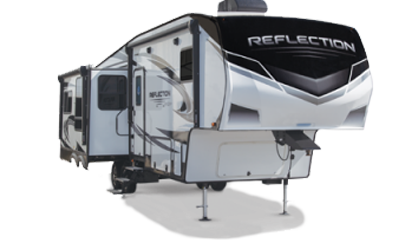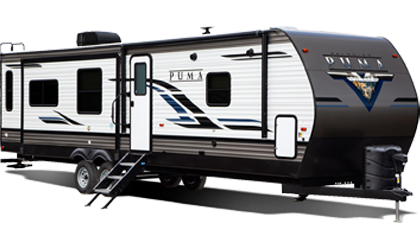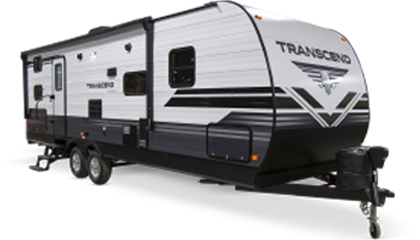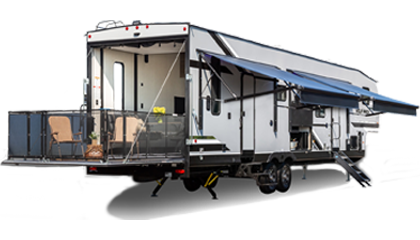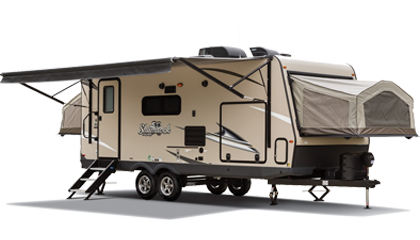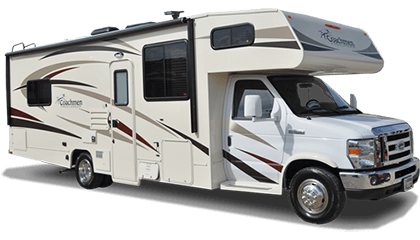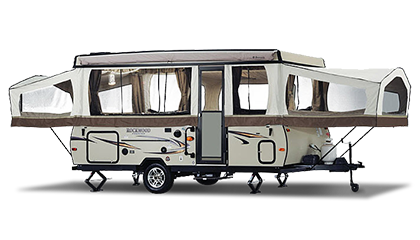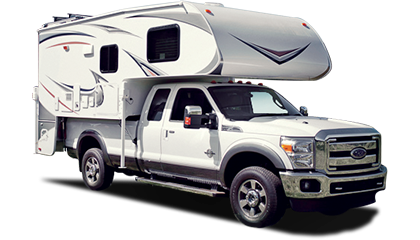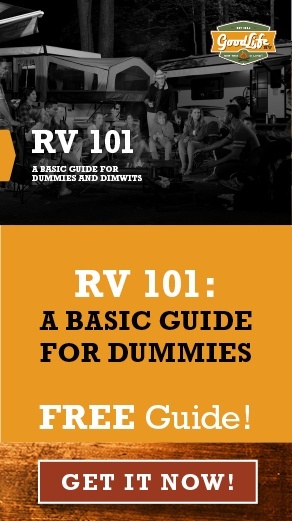Tiny House vs. RV: What’s the difference?
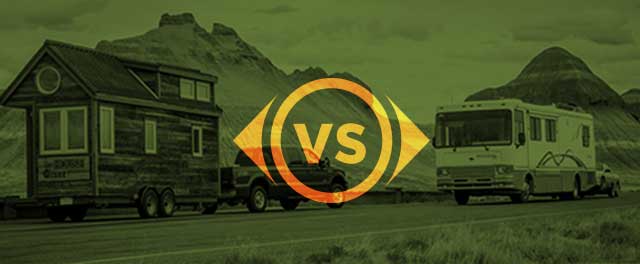
Tiny houses can do everything an RV can do, right? Wrong! Though both are made for mobile living, there are some key differences to consider if you are torn between buying a tiny house or an RV.
MORE BANG FOR YOUR BUCK
For years, RVs have been engineered to get the most out of limited space. This means RVs have more storage space and extras like built-in shelves or sleeping areas. Tiny houses are bulkier and typically only offer one sleeping area. It is difficult to build a traditional tiny house on wheels that is comparable in size to an RV without going over the weight limit for towing.
FIND YOUR FIT
When you decide to purchase an RV there is a large market of new and used options to fit within your ideal price range. Not to mention there are many makes and model options that have a variety of features to fit your needs. From pop-ups to toy haulers, you will surely find an RV that’s the right fit for you! Good luck finding those options with tiny houses.
The tiny house movement is still a somewhat new trend, so the market is just now being established. It can limit your options when you are ready to buy.
SAFE FOR YOUR FAMILY
Keeping you and your family safe while on the road is always a top priority. RVs are easier and safer to move from place-to-place because they are lighter more aerodynamic. Of course, if you decide to buy a motor home you don’t have to worry about towing at all. Tiny houses can only be towed and are generally designed more for permanent living.
If you are looking to put down some roots, note that it can be difficult to find land you can rent for your tiny home for longer periods of time. Keeping your tiny home more stationary is a good idea though- the taller ceilings and heavy wooden frames of tiny houses are not exactly highway-friendly.
SAFE FOR THE EARTH
When it is time to change locations, the homey-looking peaks on the roof of a tiny house create wind resistance, which makes it more difficult and expensive to tow. RV’s are more flexible in terms of aerodynamics, making them more efficient and eco-friendly. Newer models also contain the latest safety innovations so you can have more confidence as you travel, especially over rough terrain.
TIME AND SPACE SAVER
Many tiny homeowners build their house on their own. They use standard construction installing 2x4s on the foundation of a heavy-duty flatbed trailer. It could take months to build a tiny house on your own, and you would need a yard or garage to store it while you are working on it. You could always buy a tiny house built by someone else, but you may not get the customized features you are looking for which is part of the appeal of buying a tiny house in the first place.
Regardless of your choice, something RV and tiny house owners can agree on is the importance of having somewhere to call home as you travel. Although tiny houses are not built for frequent travel, the thrill of transporting your living quarters to any place you wish is an invaluable aspect of RVs and tiny houses alike.

